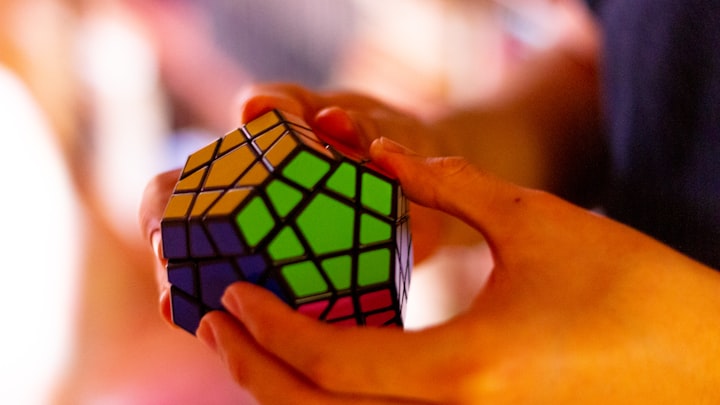
This article is about different types of intelligence, commonly known as ‘Multiple Intelligences’: a theory designed by a psychologist and professor of Harvard University named Howard Gardner in his book ‘Multiple Intelligences’ in 1983.
We witnessed in our academy duration that some students were better at subjects such as science, while others were better at physical exercises and others were good at speeches. These natural biases reflect the type of intelligence that most describes us. Intelligence is inherent, so it is challenging to alter it, but there is a famous saying,
Intelligence can be trained
means that we can develop it at every point of our lives. Both concepts are correct in their own way.
Each of us has a type of natural intelligence that is incomparable to the others, but this does not suggest that practice cannot enhance the other types of intelligence. Knowing multiple intelligences is very important so everyone can identify and train themselves accordingly. It is necessary to be aware of the different types of intelligence to enhance the strengths and fix the weaknesses. Several people are working in a job that is the best suited to them. Have you ever been a guest in a hotel where you have found yourself dealing with a rude receptionist? And a person who is better at technical skills, doing a great job in another department, but is not suitable for a customer-facing job? There are a lot of examples to mention here. You may also have experiences where you find yourself dealing with people in a job or role not suitable for them. As it is said,
Everybody is a genius. But if you judge a fish by its ability to climb a tree, it will live its whole life believing that it is stupid.
Gardner described nine different types of intelligence in his theory of multiple intelligences, and he explained that no one possesses them all together at excellent levels, but all of them are essential for a successful life.
Nine different types of Intelligence are as follows:
Naturalist Intelligence
Naturalist Intelligence is the capacity to make suitable differences within the natural world, like distinguishing one plant from another an animal, and so on. This type of intelligence is typical of biologists, astronomers, and anthropologists. This capability was apparently of value in our evolutionary past as farmers and hunters. Nowadays, it has been seen in botanists and chefs.
Existential Intelligence
Existential intellect represents sensitivity and capacity to tackle deep questions about human existence, such as the meaning of life, why we die, and how we get here. It is important to emphasize that this type of intelligence allows those who possess it to ask themselves these questions. Existential intelligence is typical of philosophers, psychologists, and partly also of physicists.
Spatial Intelligence
Painters, sculptors, and architects excel in this type of intelligence. Spatial Intelligence signifies the capability to sense figures and objects in space. People with great spatial intelligence sense orient themselves in problematic places. They recognize things according to intricate cognitive patterns. They have a developed recollection of environmental details. People working in the design and planning field must possess this type of intelligence. Youngsters with this type of intelligence are captivated with mazes, and puzzles, or spend their free time sketching or daydreaming.
Linguistic Intelligence
Linguistic Intelligence is concerned with the ability of an individual to use precise and effective speech. This type of intelligence is common among philologists, lyricists, authors, journalists, etc. You may have met people from different territories of the world in your locality and noticed that some of them already spoke the new language fluently after a few months, while others still work hard after many years. The former ones are blessed with exceptional linguistic intelligence. They can understand and associate with incredible comfort even the most complex phrases. This type of intelligence is useful for speaking and conversing confidently in public, and it is also necessary for writing accurately and understanding foreign languages without much difficulty.
Logical-Mathematical Intelligence
Logical-Mathematical Intelligence is characteristic of scientists, engineers, and technologists. People with good logical-mathematical intelligence have a great interest in arithmetic, deductive reasoning, and logic games. This type of intelligence is the ability to use logic to construct a cause-and-effect link between various elements; it is the ability to juggle numbers easily. Logical-mathematical Intelligence involves both cerebral hemispheres: the right one, which deals with construction and interpreting ideas, and the left one, which recalls mathematical symbols. Adults with increased levels of logical intelligence are interested in patterns, varieties, and connections. They are naturally drawn to arithmetic problems, investigations, and plan games.
Interpersonal Intelligence
Interpersonal intelligence symbolizes the ability of a person to understand and interact with other persons properly. This type of intelligence permits us to remember the character and personality of those around us, expect the behavioral reactions they will have, and act accordingly. Usually, this kind of intelligence is possessed by entrepreneurs, teachers, managers, and political leaders. Those who have more of this use their empathic capacities to connect with others and comprehend their emotions, worries, and requirements. This type of intelligence permits us to know about other human beings, understand their reasons, and, if necessary, exploit them. All of us should develop it, as it is beneficial in daily life relationships. Individuals with this type of intelligence are leaders among their peers because they are good at communicating and seem to understand the emotions and motives of others.
Intrapersonal Intelligence
Intra-personal Intelligence is the capability of a person to understand his feelings, strengths, weaknesses, and fears to achieve his goals. Intra-personal intelligence can be developed by thinking about ourselves and speaking our hearts out, frankly without any judgment. This type of intelligence is common among actors, psychologists, and philosophers. Young adults with this type of intelligence are shy. They are self-motivated and conscious of their feelings.
Musical Intelligence
Those who have Musical Intelligence possess an interest in the music field. Usually, they are good musicians and singers. Musical intelligence is present in the right hemisphere of our brain, but people with musical culture magnify the theme in the left one. This kind of intelligence is predominantly possessed by songwriters, musicians, and singers. Interestingly, there is often an effective connection between music and emotions; and mathematical and musical bits of intelligence may share typical reflection strategies. They know different sounds more accurately than common people.
Bodily-Kinesthetic Intelligence
Bodily-kinesthetic Intelligence is the capability to use a combination of bodily talents. People with this type of intelligence also have strong coordination skills. Dancers, athletes, and surgeons demonstrate well-developed bodily-kinesthetic intelligence.
We can develop different types of intelligence from the above list. They are more or less innate in individuals. They are not static and can be learned by doing various exercises. Intelligence can become weaker over time if training becomes discontinued, so it is important to keep the brain in continuous exercise. Knowing the intelligence that matches our attitudes allows us to understand which studies to undertake to develop it and how to use it to accomplish a prosperous life.
Thanks for Reading!
👏 Please leave a heart for the story.
🌐 Share the story on Social Media.
Disclaimer: The story has already been published on other platforms.
About the Creator
Ha Le Sa
Lost my old account with all the earnings and subscribers. Kindly support me by reading and sharing my stories.
🌟 Support my work with a Small Donation.






Comments (1)
So concise and well written